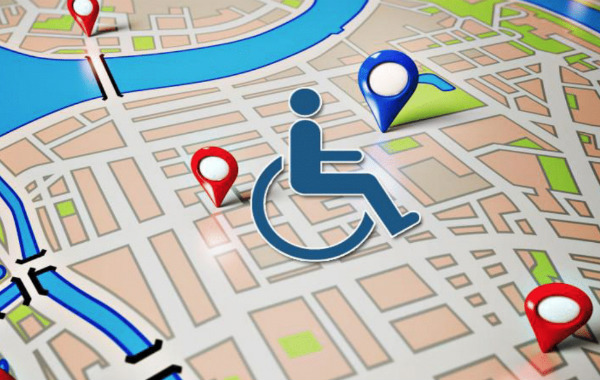
In times of political and economic uncertainty, it is easy to feel we don’t have power. Often just deciding to take action makes us feel more positive. And actually doing something helps even more!
We look at some recent examples of how one positive action eventually led to important changes.
1. Start a petition
Belinda Bradley contacted Google about the lack of wheelchair-accessible route options on their maps app. She was planning a trip around London with a group including several wheelchair users. One of these was her mother. She found it frustrating that it was so difficult to check the information.
Initially Belinda got little response. But when she used online petition change.org to make her point, there was a huge response with more than 300,000 people signing it. In December 2017 Google added accessible routes to their app. But more was needed and since then Google has set up a facility to allow its 2 billion users to act as ‘local guides’ and submit detailed reviews and information about how accessible routes are.
Belinda’s actions mean that millions of people with mobility requirements will nowhave better quality information when planning their routes.
2. Make a film
90% of Deaf children are born to hearing parents. The majority (approximately 88%) of these will never learn sign language and many fear their child learning a different language. The implications for the Deaf children’s access to education and opportunities are lifelong.
Actress Rachel Stenton is the daughter of a parent who became deaf. She observed first-hand the barriers this created for her Dad. She decided to make a film to highlight the issues and wrote and starred in The Silent Child which has won 7 international awards, including, most recently an ‘Oscar’ Academy award for best short film. The 20-minute fictional story successfully highlights what can happen if hearing parents take decisions for their Deaf child based on their own fears and worries about ‘being normal’ and their own status. Stenton’s film, has started a broader debate and supported the Deaf community to get across important messages to policy-makers such as why there is no GCSE British Sign Language in schools.
3. Write a letter
Writing a letter can be good therapy about an issue which may infuriate you, even if you don’t send it! Result CIC’s Jane Cordell has been a long-time advocate for the importance and value of supporting for disabled people into – and in – work. There has long been powerful evidence of working being the best route to an independent and fulfilling life and successful disabled workers act as powerful role models to others. Yet more than half of working age disabled people in the UK are out of work.
As a deaf person, Jane has been in the firing line in the past for needing ‘expensive’ human support. When the Department of Work and Pensions (DWP) decided to introduce a limit on support (Access to Work grants) which would potentially stop the tiny number of senior full-time deaf professionals from doing their jobs, she wrote a letter to the DWP asking various questions and querying the evidence for their decision. She copied it to her MP. And she copied it to another MP who she knew took an interest in disability and employment. Both MPs took up the issue. Then told the Parliamentary Select Committee which was carrying out an enquiry into this. And they suggested the letter be used as part of their published evidence.
In March the DWP announced it was raising their limit on support. This means many of those who would have been restricted in their jobs are now not, though several people are still facing restrictions.
Do you have a message which you need heard It is often impossible to know what the impact of our actions will be. But that should not stop us trying. We hope these different examples may encourage you too to ‘do something’!